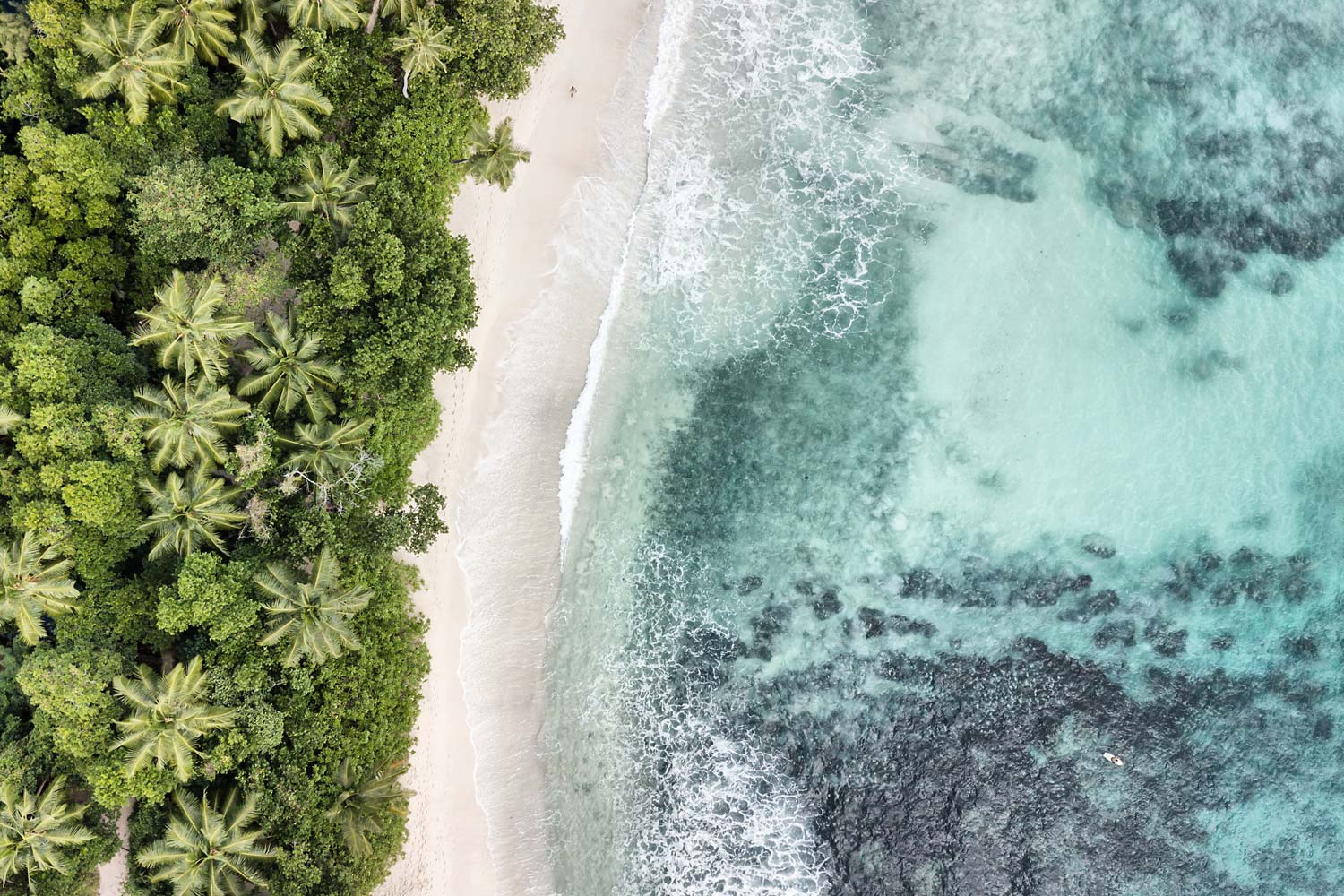As of January 2021, certain sunscreens are no longer allowed in Hawaii because they contribute to coral death. What does that mean and does it have consequences for our sun protection in Europe
No question: When the sun is shining, we have to protect our skin. Above all, because we can do without skin cancer. But also because our skin should stay young for a long time and not become a leather bag.
The common means of sun protection are clear:
- avoid the sun (stay indoors)
- Stay in the shade
- wear clothing
- And of course: use sunscreen (chemical or mineral)
Sunscreen or suntan lotion is particularly effective because it keeps the sun's ultraviolet rays away from our skin: chemical sunscreens convert the rays into heat, while mineral sunscreens reflect them away from the skin.
What protects our skin from the sun can harm the environment
Maybe you already have it in our post about theDifferences in sun creams and sun protection factors read: Many sunscreens are under strong suspicion of harming nature.
The US state of Hawaii therefore passed a law in 2018 that will ban sunscreens containing Oxybenzone and/or Octinoxate from January 1, 2021.
Oxybenzone (Benzophenone-3) and Octinoxat (Ethylhexyl Methoxycinnamate) are excellent UV filters in sun creams. However, scientists also see them as the reason why
- the genetic makeup of aquatic life is damaged and
- thatCoral reefs are bleaching and dying.
The consequences can be enormous:
Coral reefs are also called the rainforests of the sea because of their impressive biodiversity. Countless animals call the reefs their homes and depend on them. For this reason alone they are worth protecting. What's more, they help ensure that the water in the oceans does not hit the land unchecked. A lack of reefs on the coasts can have devastating consequences.
In short: when coral reefs die, it endangers biodiversity, but also security on the mainland.
The Hawaii Reef Act is a sensible and long overdue move in our opinion, given Craig Downs of the Virginia Haereticus Laboratory:
„These chemicals are now found everywhere in nature, from the Arctic to remote coral reefs in the South Pacific. They are found in dolphins, wild bird eggs, many of the fish we eat, and coral.
How can that be
It is estimated that 14,000 tons (yearly!) of sunscreen end up in the sea. The tourist holiday destinations are hit particularly hard: 9 million people visit Hawaii every year, which means that the damage is particularly great. On the island of Maui, it's an extra 210 liters of sunscreen a day. Researcher Craig Downs predicts that there will soon be no living coral reefs left for tourists to visit in Hawaii.“
What about the environmental damage caused by sunscreen in Germany
No big surprise: Here in Germany, too, researchers were able to detect the UV filters oxybenzone and octinoxate in the waters. This is also the reason why the Federal Environment Agency is dealing with the topic as a precaution.
According to the current status, the concentrations arestill not that high. Federal Environment Agency expert Jürgen Arning sees no acute threat to the life of the fish in German waters. But that is no reason to sound the all-clear: there is no comprehensive control and the long-term consequences are not clear either.
Do you agree that it's better to be safe than sorry And that sunscreen should be umwelt- and coral-friendly Then read on::
Where to find eco-friendly and coral-friendly sunscreens
Basically it would be super simple:
Only buy sunscreens, the Oxybenzone or OctinoxateNot contain.
The INCI designations are: Benzophenone-3 and Ethylhexyl Methoxycinnamate.
But it's not that simple after all:
We recently went to the drugstore with the Codecheck app in hand. We looked at various sun creams, checked for the critical substances oxybenzone and octinoxate and examined other questionable ingredients.
Conclusion: It doesn't look good.
There are isolated sunscreen products that are coral friendly and do not contain Oxybenzone or Octinoxate. When we checked these products with Codecheck, the program often contained ingredients that we wouldn't let on our skin ¿or in the environment. Including badhte“ alcohols or parabens as well as occasionallyBHT.
That got us thinking!
Finding a sunscreen that's good for your skin shouldn't be a big challengeand is compatible with the environment. Not finding any with a simple search at the drugstore was reason enough for us to take matters into our own hands:
At sober, we have been sober on a new formula for effective sun protection that cares for your skin, protects it from the sun and is harmless to nature. Here you canOrder sun protection with SPF 50.
We'll be in touch with good news! #staysober
Simon


